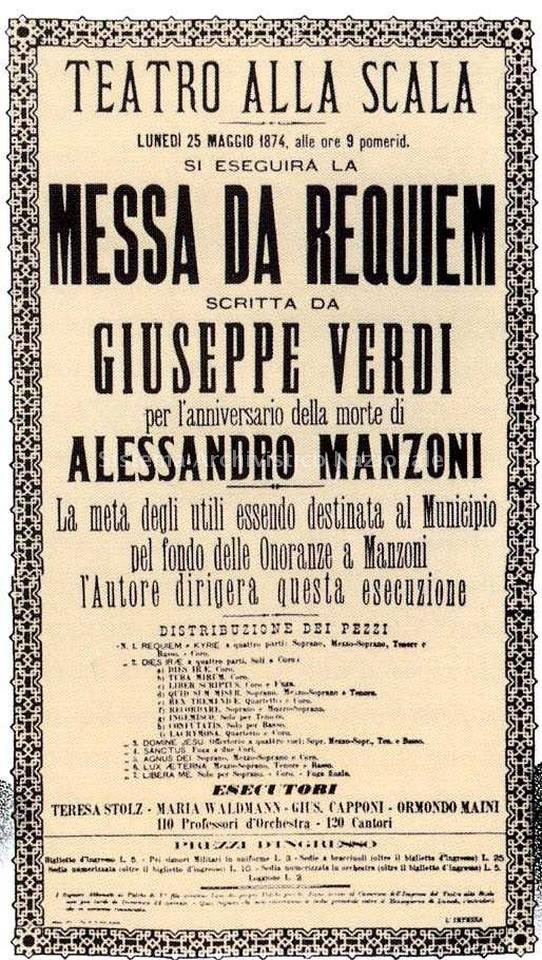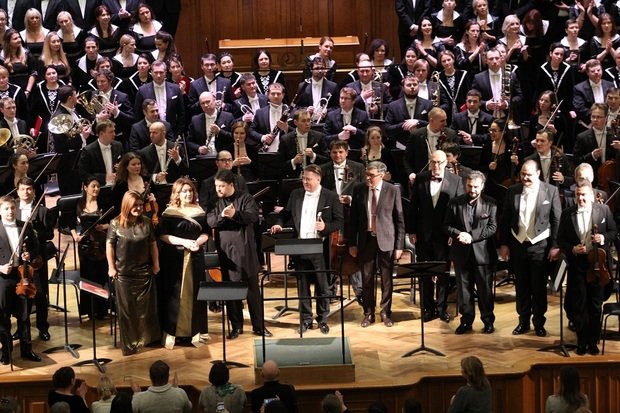Where eternity is
Alexander Sladkovsky interprets Verdi's Requiem as enlightenment
The Tatarstan National State Symphony Orchestra is winning the hearts of music lovers in Moscow more and more strongly. Recently, in the Great hall of the Moscow State Conservatory, the Tatarstan State Symphony Orchestra headed by Alexandr Sladkovsky performed Requiem by Giuseppe Verdi. Read the details in the material of Realnoe Vremya.
The most tragic opera by Verdi
Requiem is called the twenty-seventh opera by Verdi. He worked on it in parallel with Aida, where the tragic theme also overlaps with enlightenment, and the inevitable is perceived as the beginning of eternal. In Requiem by Verdi, a recognized melodist, there is much in common with opera cantilena, characteristic of the Italians — duets, quartets, terzets. But still, Requiem is a requiem mass, and what is in its conditional plot will sooner or later affect everyone who lives in our sublunary world.
It took some time for Verdi to write Requiem. First, it was the death of Rossini, whom Verdi called ''the glory of Italy''. He offered fellow composers to write a Requiem in memory of Rossini, each of the selected twelve was to write one part, the one that he would have by lot. Verdi got the final.
By his idea, this collective work was to be performed on the anniversary of Rossini's passing from life in his musical homeland, in Bologna, in the San Petronio Basilica. The composition was to be performed only once, then the notes were to be put in an envelope, the envelope sealed, and the notes were to be transferred to the archive of the Bologna music lyceum. The collective Requiem was written but not performed, the conductor fell ill and the performance was disrupted.

But the subsequent life of Verdi, a series of losses of relatives and friends and, most importantly, the death of Italian writer Alessandro Manzoni, whom the composer considered his spiritual mentor, his father, prompted him to create Requiem. Mandzoni's place in Verdi's life was special — after reading his novel The Betrothed at the age of 16, he seemed to have found a moral reference point. When Manzoni was gone, Verdi did not have the strength to be at his funeral, but he pledged himself word to perpetuate the memory of ''our Saint.''
The first performance of Verdi's Requiem took place in Milan on 22 May 1874, the anniversary of Manzoni's death. That day, Verdi himself conducted the performance in the Church of San Marco. A few days later, Requiem was repeated with great success in the Teatro Alla Scala. Since then, along with Mozart's Requiem, it is one of the most performed works of this genre.
Craving for sacredness
Requiem by Verdi has seven parts, it is unlikely to be a coincidence — seven, as is known, is the sacred number, and, in addition to other reasons, perhaps, Verdi thus introduced in his work a kind of mystical note. It is with the craving for sacredness, for greatness of human spirit, with faith in the triumph of eternal life the Tatarstan National Symphony Orchestra directed by Alexander Sladkovsky performs the funeral mass by Verdi.
On the stage there are the orchestra, the choir by Lev Kontorovich Masters of Choral Singing, the state academic choir named after Sveshnikov and four soloists. Soprano — Veronika Dzhioeva, mezzo-soprano — Ekaterina Semenchuk, tenor — Hovhannes Ayvazyan, and bass — Dmitry Ulyanov. Sladkovsky gathered a powerful team as always.
The interpretation of the conductor is all in the contrasts. The horror, despair of the Last Judgment is replaced by peace. The soul goes through ordeal, but there is hope. God is merciful, light is stronger than darkness. God has overcome darkness by creating light, and this is salvation for our souls.

Perhaps, the key word for Verdi's Requiem in Alexander Sladkovsky's interpretation is ''enlightenment''. The inevitability of passing away, about which we sooner or later think about, the inevitability of losing loved ones — without such reflection it is difficult to understand the intention of Verdi, pass it through yourself. The conductor acquired this knowledge for various personal reasons, and his spiritual experience becomes ours.
Alexander Sladkovsky when performing Requiem is our wise companion who leads us from despair to hope. He leads us to enlightenment, that is, understanding of the inevitability of what will happen to each of us once, but this is not the end. Because ''There is no death, it is known to everyone'' — let us remember Anna Akhmatova. There is no end and cannot be, but there is eternal life. The sounds of Verdi's Requiem, no matter how terrible or sad they can be at times, is like a hello from eternity.
Moscow audience listened to Verdi's Requiem performed by the Tatarstan National State Symphony Orchestra, and for the spoiled by musical events capital public it was a sensation. Let's hope that Kazan citizens will be honoured to hear this work.